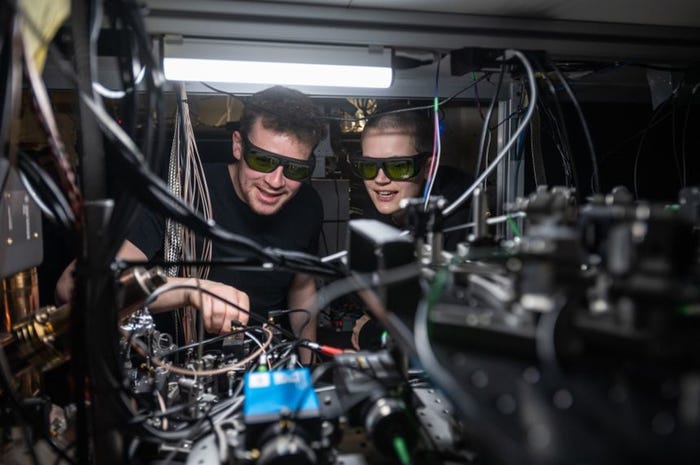
Connects decision-makers and solutions creators to what's next in quantum computing
Quantum Makes PwC’s ‘Essential Eight’ Emerging TechnologiesQuantum Makes PwC’s ‘Essential Eight’ Emerging Technologies
PwC’s Scott Likens explains why 29% of companies plan to invest in quantum in 2024.
December 20, 2023

PwC’s recent emerging technology survey has seen quantum computing rank seventh in the “essential eight” technologies for the first time, with 29% of companies planning to invest in it over the 12 months.
The full list of technologies it features are:
Artificial intelligence – 58%
Internet of Things – 46%
Virtual reality – 35%
Augmented reality – 34%
Advanced robotics – 33%
Blockchain – 30%
Quantum computing – 29%
Neural interfaces – 21%
In this Q&A, PwC’s global AI and innovation technology lead Scott Likens explains the significance of the results.
Enter Quantum: What is the essential eight survey and how do you identify what technologies to include?
Scott Likens: We first published the survey in 2016 to help clients understand where to make investments in technology. There hasn’t been much change over until this year, when AI and machine learning are all everyone is talking about and quantum and neuromorphic computing have been added.
There are some essential ones like AI and IoT and some in the middle where we’re waiting for technology to mature, like AR and VR. Then there are the ones you have to pay attention to that maybe aren't on your radar yet but you should invest in, like quantum and neuromorphic, which was a tough one to get over the line as mist leadership hasn’t heard of it.
We felt passionately that computing was changing right in front of our eyes. The Gen AI wave and neuromorphic have had some big headlines this year. That’s a transitionary compute towards quantum, although quantum is still a harder problem to solve.
Did it surprise you that as many as 29% of respondents said their companies plan to prioritize quantum computing next year despite it being at such an early stage?
To have almost one in three saying they're planning to prioritize investment in quantum was very positive. It’s a harder or lesser-known concept, though it’s starting to get some press. This year there have been some big announcements from some of the bigger players, especially hybrid breakthroughs using classical AI and quantum AI together.
We're starting to see some of our big clients recruiting quantum PhDs, so I feel good about our prediction. We’re a bit ahead of the public curve, which is good, but I think we're starting to see money flow there.
What kinds of quantum use cases are your clients working on?
The tangible value cases are still in optimization or molecular unfolding. We saw some material discovery breakthroughs just with AI, so quantum AI will take that further. We’re also thinking more about the growth in IoT data, maybe more processing at the edge.
For things like predictive maintenance, complex problems, airlines, railways and supply chains in general, you’ll be able to do more prediction and optimization because of the nature of parallel processing. Asset management has been constrained by compute to some degree; there's just a mass amount of information.
We’re also excited about environmental, social, and corporate governance (ESG) use cases. We can design better solar panels using quantum because we can create better molecular or physical material science capabilities with it. I think that's still a little bit further out.
What would your advice be to the 29% of organizations looking to invest in quantum in the year ahead?
The talent plan is not there yet; there aren’t thousands of people out there in the job market that can do this work, it’s still a very bespoke skill. Plan for how you get that team and keep it together, because we will have ups and downs. A one-year investment doesn't mean much, you have to have a multi-year investment because your talent and workforce are so important.
You also need to think about how to make the right partnerships either with academia or hardware vendors. And while investment is important, ensure you’re doing it responsibly, because it is such a different world that we're dipping our toe into.
You May Also Like




